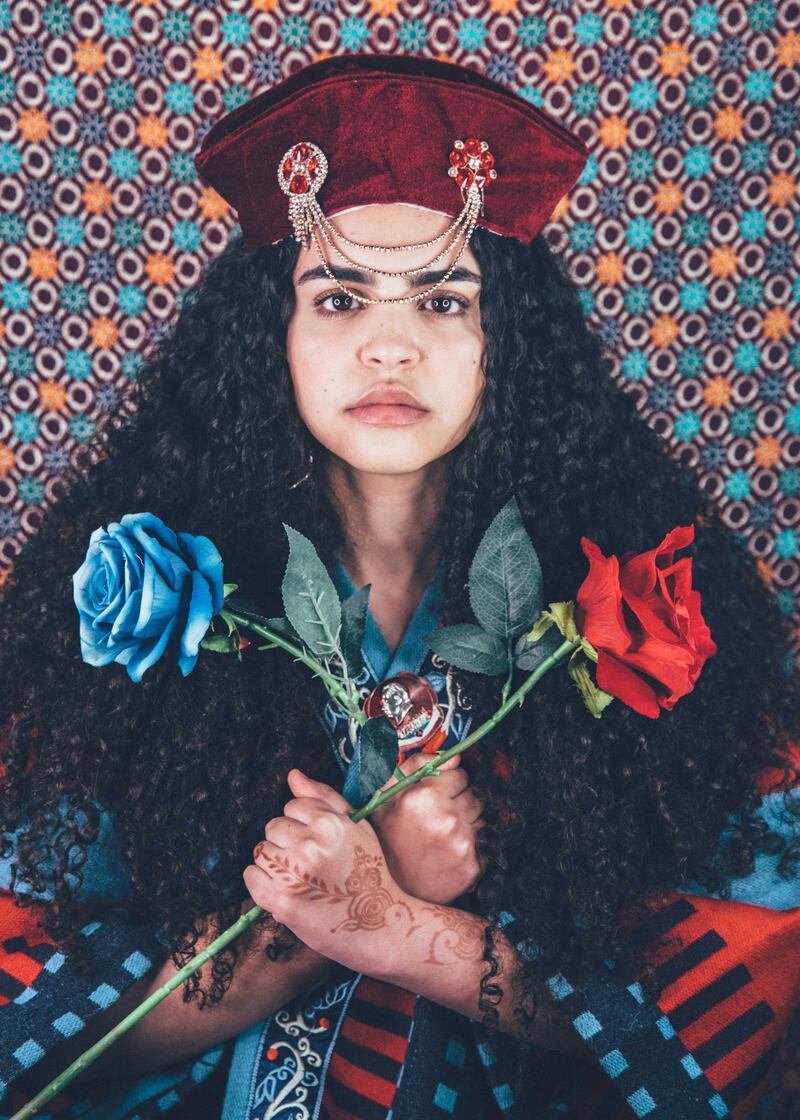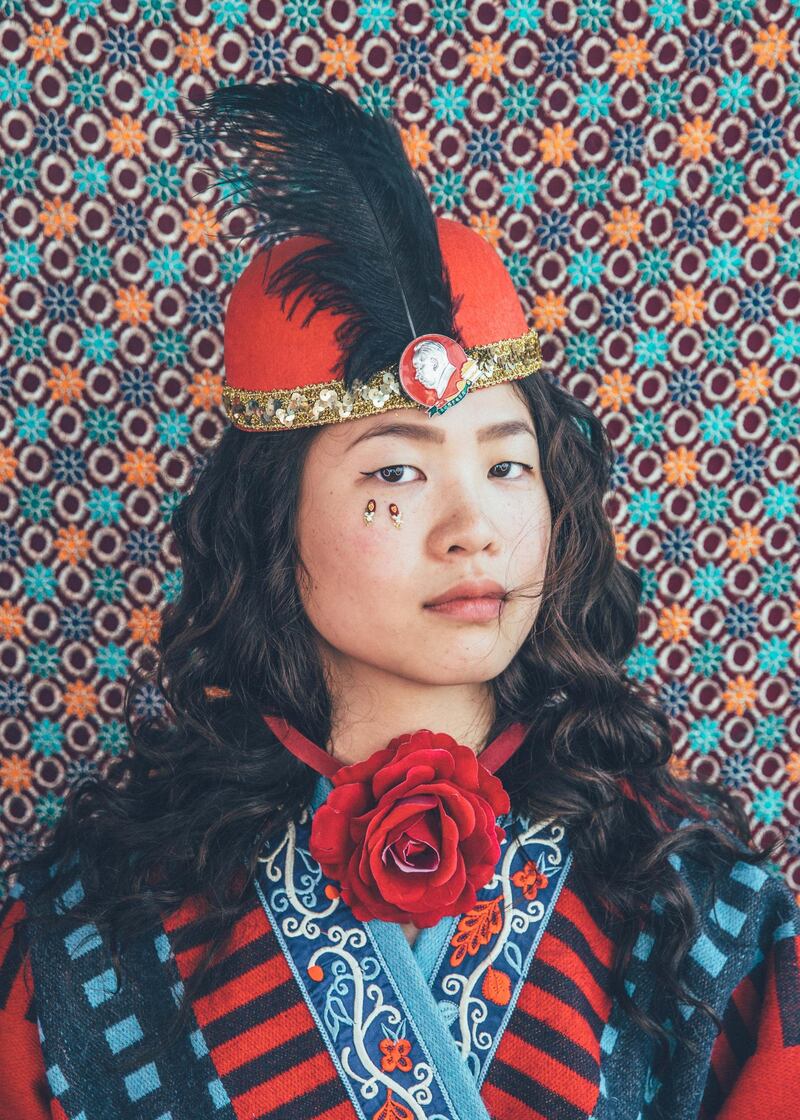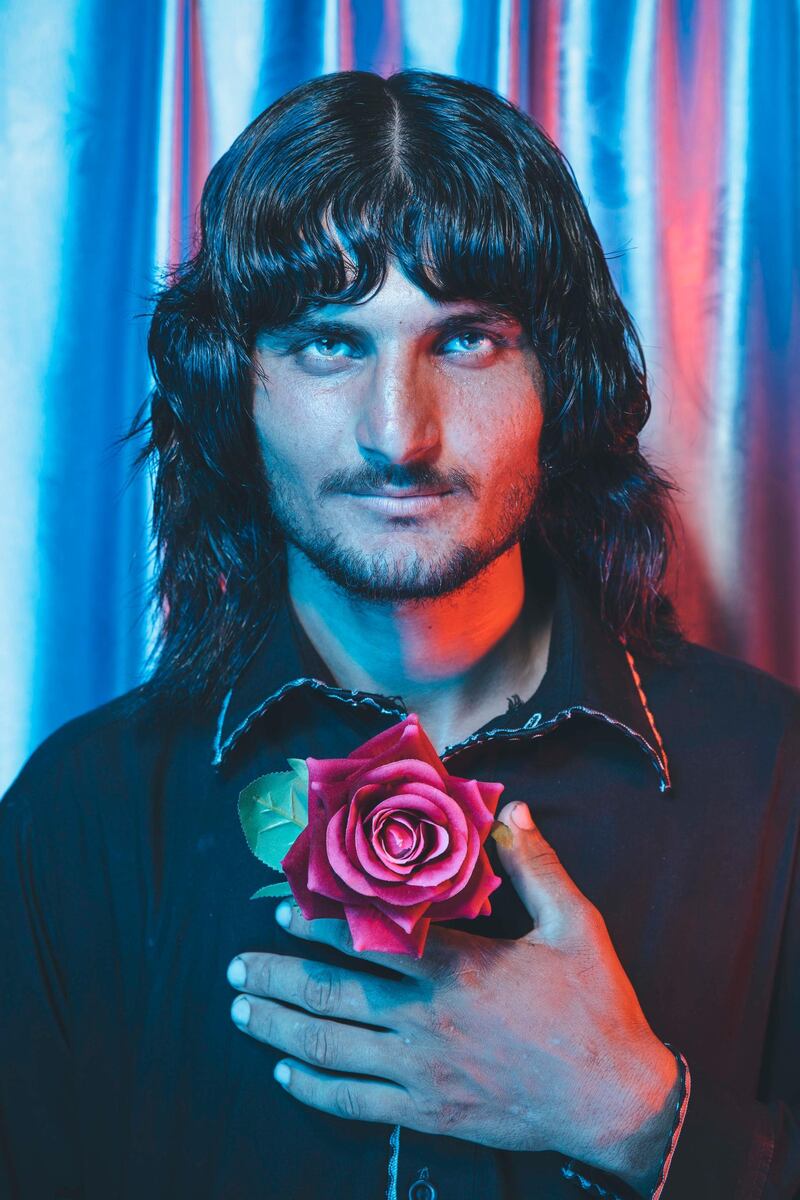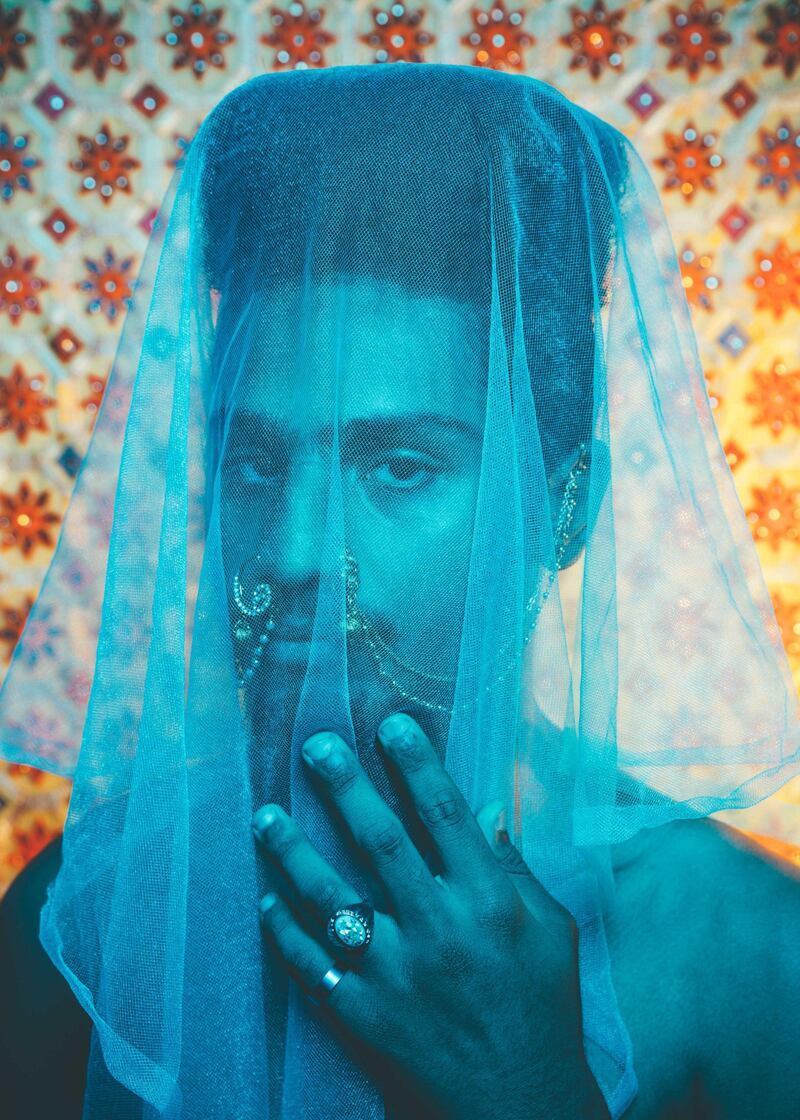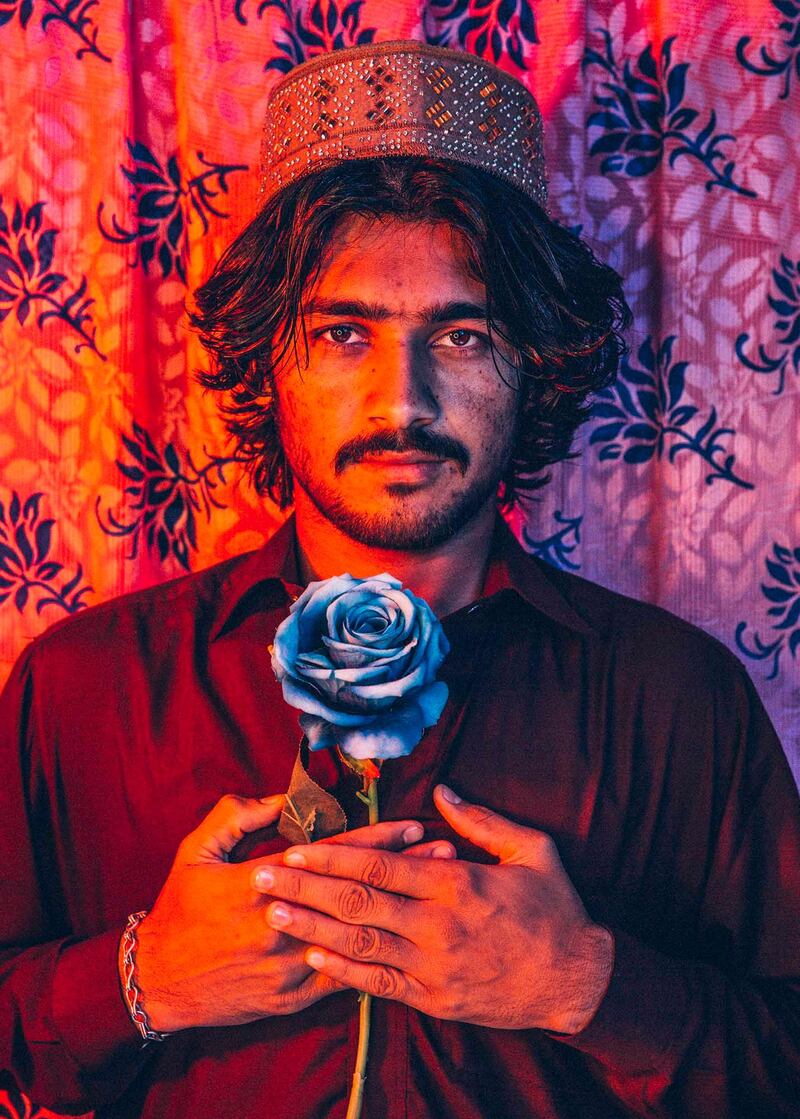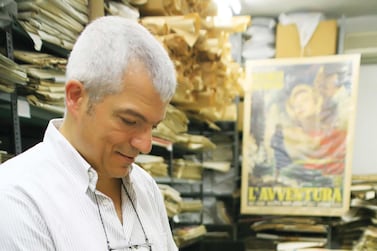Photographer Marta Lamovsek has made a career out of fictionally elevating Dubai's working class into royalty.
Her elaborate styling isn't reserved for women, either.
It's perhaps why you'll see striking portraits of elaborately-dressed men set against a luminescent pink background. Or why her portraits of women are typically pared back; almost androgynous, even. Or why the men are usually holding flowers.
"In my younger years, all my focus was on the women only — it’s what you know, it’s comfortable," she says.
"It’s the masculinity and femininity in balance that I find immensely beautiful, that’s why my work is gender neutral: I portray humanity. And for me, a man who is not afraid to show his feminine side; that’s a powerful man."
Lamovsek's photographs have made waves across the UAE in recent years, as she wanders the streets of the UAE and propels everyday people into the upper echelons of society through film.
It's a role she spoje about at an event for International Women's Day — the two-week 'Made By Women' series, featuring inspiring women from around the region, held at the Apple Store at The Dubai Mall.
Lamovsek is a strong advocate of freedom of expression and gender equality, and believes the UAE has provided plenty of advantages of working as a woman.
"I am a strong advocate for equality and I seek to erase the gap between men and women," she says.
"I see my role now is sparking awareness of equality between gender, race, nation and class. I am truly inspired by Middle East street culture and I love to portray something that does not exist with just a 'naked eye and a camera'. I love to subvert stereotypes of this place."
Originally from Ljubljana in Slovenia, Lamovsek's move to Dubai was serendipitous. She was living and working as a photographer in London around six years ago when she wrote a message on Facebook asking Santa for a "gig somewhere warm".
A week later, she met a photography agent at an event, who offered her a six month contract to shoot the imagery for a newly-opened club in Dubai.
"It was below my experience, but ... as a natural adventurist, I saw an opportunity to discover a world in a completely unknown environment and it was one of the best quick decisions I ever made."
And the chance encounters kept on coming.
Lamovsek was wandering the streets of Satwa in 2016 buying props for a portrait series without a subject, when she noticed a Pakistani worker nearby. He was gracefully leaning against a street light, texting on his phone.
"I felt an incredible powerful urge, I was so immensely drawn to him, that for the first time in my life, I went straight to the man [and said] 'I would like to take a portrait of you'," she recalls.
"We somehow agreed, with a lot of hand gestures, that we will meet at the same time, same place, in a week. Then, I took him to my studio, and there, I felt I wanted to give him a flower in the hand, and it was goosebumps! That was it, and this is how the 'Plastic Garden' series was born."
The Plastic Garden series is perhaps what Lamovsek has become most well known for — characterised by vibrant portraits of men and women depicted as warriors and princesses and elevated socio-economically through elaborate styling.
But in doing so, Lamovsek also seeks to subvert traditional gender tropes; perhaps one of the men is clasping a flower and surrounded by pink. And most of the time the women will be fully covered, wearing something akin to their male counterparts.
"My favourite portraits are the ones that tell a deeper story and the ones that are the hardest to make. It sometimes can take days to bring that one image into life; no sleep, bad skin — great portraits."
Her photos have since adorned the walls of the Alserkal Cultural Foundation in the Al Fahidi Historical District to pop-ups in London. In fact, the photo that started it all — 'Ashiq the Rockstar', the Pakistani worker with the bright blue eyes clasping a flower — was purchased by a London art collector from Mayfair.
It is, however, a long way from the fashion photography and female-focused style of her younger years, she admits.
"Now, more mature me needs to put myself out of comfort zone, to explore unknown subjects, different cultural backgrounds, races and classes, and their vulnerability. I get access to understanding men as humans way more, and the more I portray men, the more I discover that we are all one."
The 'Made By Women' series is a two-week programme featuring inspiring women from around the region, held at 7pm at the Apple Store at The Dubai Mall.
